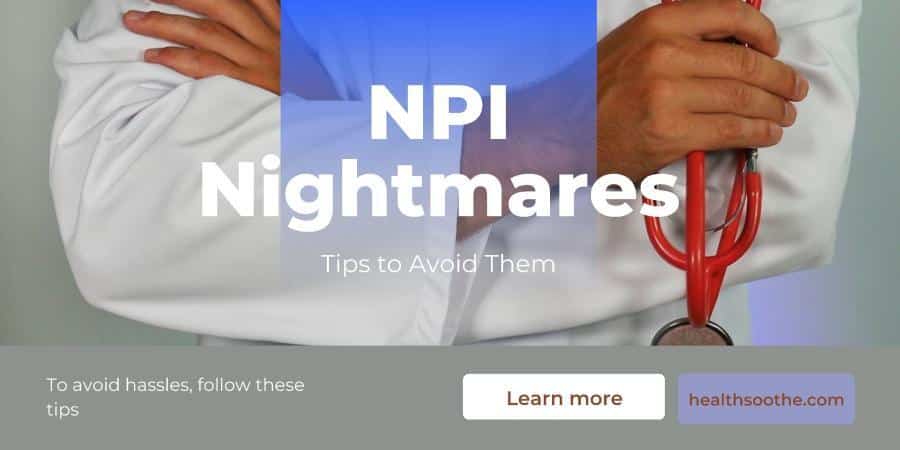It can be a headache for practices and individual providers to get a National Provider Identifier (NPI). A practice applying for NPIs for all its providers and an individual doctor using for his own NPI could generate two NPIs by the National Plan and Provider Enumeration System (NPPES), causing practice managers and providers to wonder which one to use.
Learn more about NPI lookup for doctors. Doctors are responsible for obtaining their NPI or knowing who is applying for one. An NPI is to be given to the physician by the person receiving it, according to NPPES.
You must notify the NPI enumerator within 30 days when your NPI information changes, such as your address.
To avoid hassles, follow these tips:
- Be sure everyone understands the NPI before applying. Providers should be seated with the practice manager to ensure no one else has applied.
- Online applications are not accepted at nppes.cms.hhs.gov. NPI recipients cannot choose a user name on the paper application.
- The tracking number for the application can be found on the last page of the online application.
- You will receive an email with the NPI number. Save it. To ensure that you always have a copy of this document, print it out and place an extra copy in your personnel file.
- You can choose your online password as it belongs to you. Your practice manager should not select passwords if you have one.
- Check with the vendor of your practice management system to see if an NPI number is available in its system. You may also want to ask your clearinghouse when the NPI number will be accepted.
A three-step process for preventing NPI theft
Hundreds of bogus prescriptions or millions in unauthorized claims can be attributed to you if your NPI is stolen. If this occurs, an investigation may determine whether you are liable for repaying the government for the fraud (e.g., a False Claims Act lawsuit).
Additionally, CMS may stop paying you during the investigation. Your reputation, finances, and practice can be severely affected by this. You can prevent large-scale healthcare fraud by preventing the theft of your NPI before that happens.
1. Be aware of your surroundings
Be responsible and sparing with your NPI. If you share your NPI, ensure you know how and why it will be used.
2. Monitor
Make sure your NPI is being used correctly. For example, check your claims and reimbursements to ensure that billed services match your income. It indicates that your reimbursements are being diverted to a bogus address. Make sure your credit report shows no unusual behavior under your name. Your NPI has also been compromised in this way. You can ask someone you trust to monitor your account if you don't have the time.
3. Review and update
Ensure that your enrollment information is up-to-date and accurate with payers. Ensure all enrollment information is updated when your practice location or employer changes. Within 30 days of any change in data furnished to obtain your NPI, CMS requires you to notify them.
Getting relief from alleged financial liabilities is difficult if your NPI is stolen. CMS launched CPI in 2011 to assist victims of NPI theft and speed up the exoneration process. If you suspect NPI theft, contact CPI immediately or visit the CMS website to find the program integrity contractor in your state.

